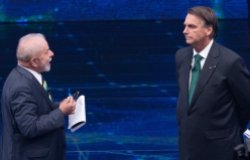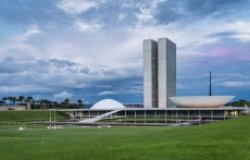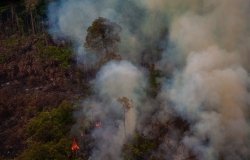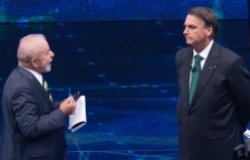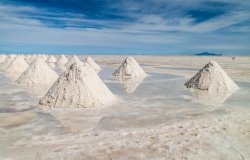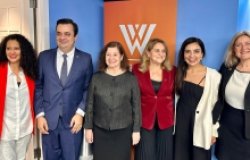Brazil's Critical Minerals and the Global Clean Energy Revolution
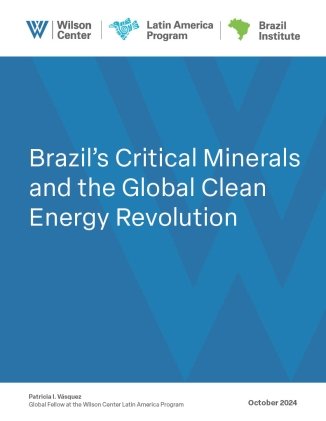

Brazil has all the elements for becoming an engine of the rapidly evolving global energy transformation. The country boasts some of the world’s largest deposits of critical minerals essential to make possible the transition from fossil fuels. Brazil is already an exporter of some of these minerals. But beyond exporting raw materials, the country is also looking to develop critical minerals value chains at home, leveraging its leadership in renewable energy. In the process, Brazil could emerge as a trailblazer in green technology and climate change solutions.
In this new article, Patricia I. Vásquez, Global Fellow at the Wilson Center Latin America Program, offers an insightful analysis of the opportunities Brazil faces in the evolving critical minerals landscape, highlighting key challenges such as Brazil's complex tax policy and the lack of a fully integrated critical minerals strategy.
About the Author

Patricia I. Vásquez
Independent Energy Expert, Former Jennings Randolph Senior Fellow at the U.S. Institute of Peace

Brazil Institute
The Brazil Institute—the only country-specific policy institution focused on Brazil in Washington—aims to deepen understanding of Brazil’s complex landscape and strengthen relations between Brazilian and U.S. institutions across all sectors. Our mission is to provide thoughtful leadership and innovative ideas to help democracies evolve and enhance their capacity to deliver results. We achieve this by producing independent research and programs that bridge the gap between scholarship and policy, while serving as a hub for policymakers, scholars, and private sector leaders. Read more

Latin America Program
The Wilson Center’s prestigious Latin America Program provides non-partisan expertise to a broad community of decision makers in the United States and Latin America on critical policy issues facing the Hemisphere. The Program provides insightful and actionable research for policymakers, private sector leaders, journalists, and public intellectuals in the United States and Latin America. To bridge the gap between scholarship and policy action, it fosters new inquiry, sponsors high-level public and private meetings among multiple stakeholders, and explores policy options to improve outcomes for citizens throughout the Americas. Drawing on the Wilson Center’s strength as the nation’s key non-partisan policy forum, the Program serves as a trusted source of analysis and a vital point of contact between the worlds of scholarship and action. Read more



